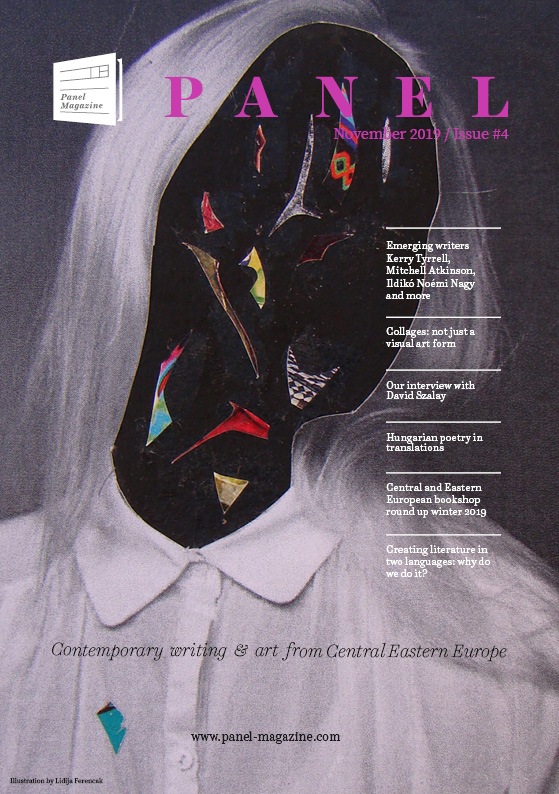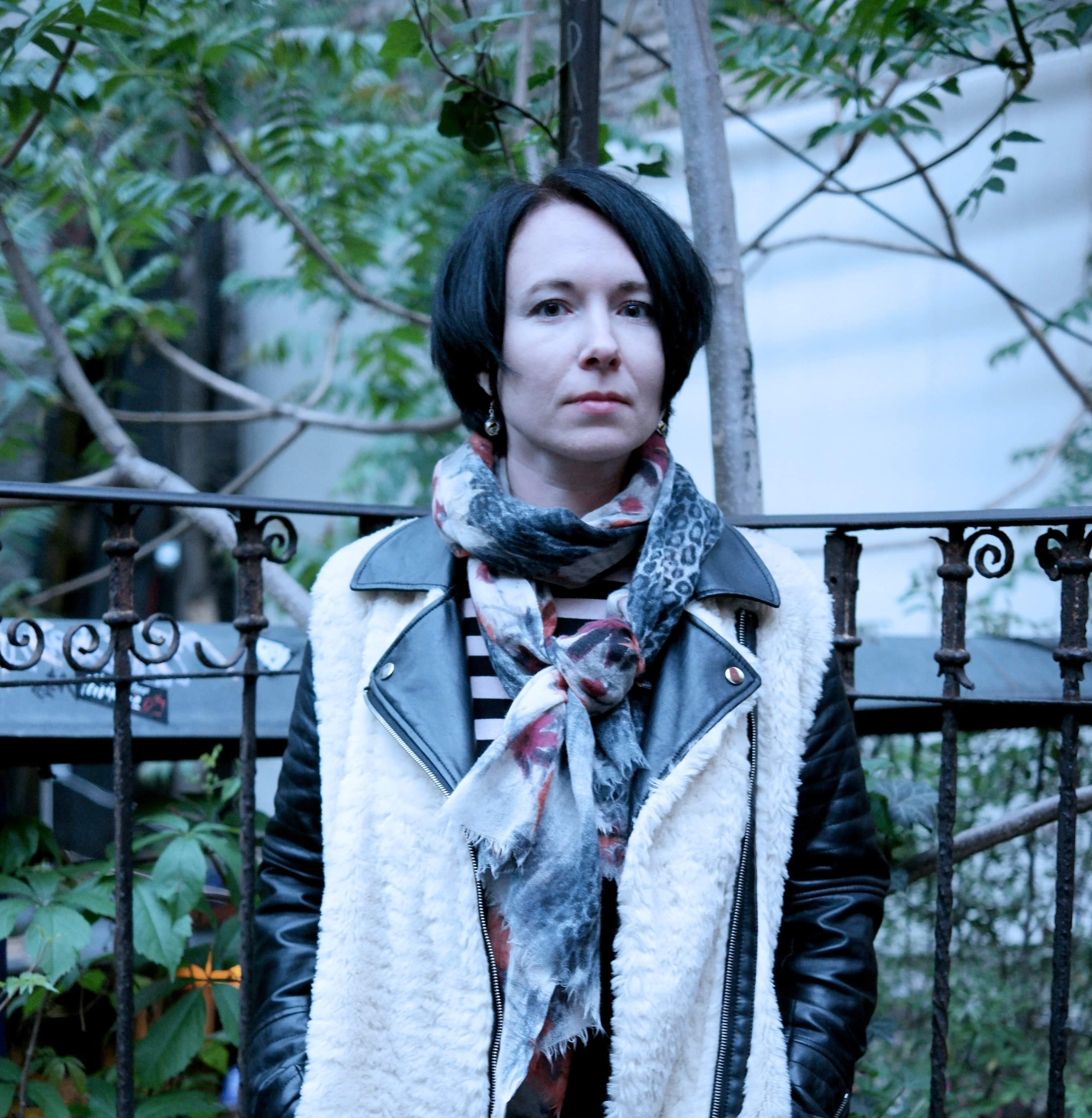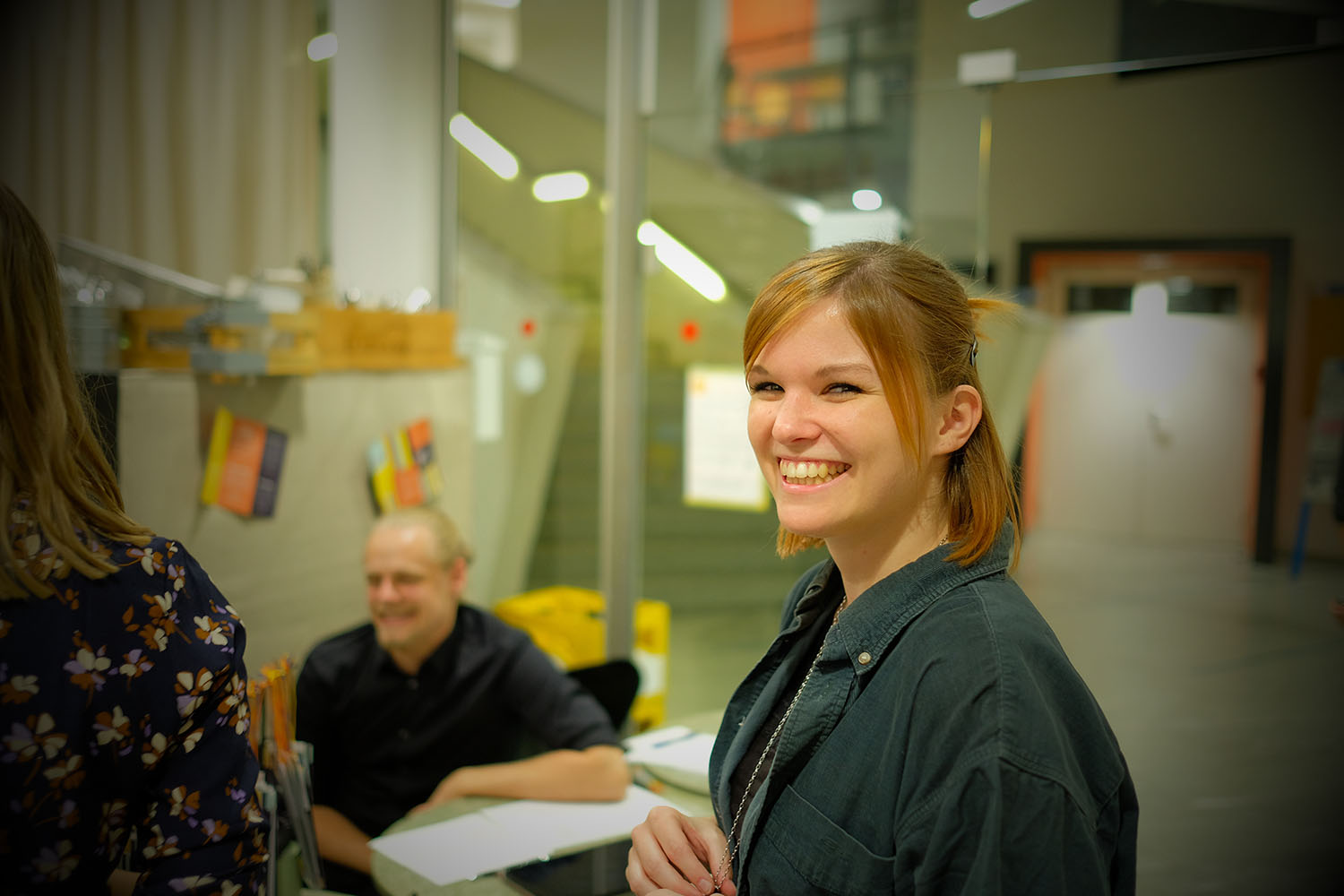Published November 15th, 2019
Interview
by Lisa Schantl

Tint Journal and PANEL Magazine are both independent literary magazines; they both publish (most of) their content in English, although they are based in countries where another language is predominantly spoken, German or Hungarian; and they are both young and growing.
So, I, Lisa Schantl, editor-in-chief at Tint, and Masha Kamenetskaya, editor at PANEL, decided to have a little chat about how we started, what we are struggling with and why it's all worth it.
To listen to our chat, go to Tint Journal's SoundCloud.
***
Masha (editor at PANEL Magazine):
There were people involved from the beginning: me, Duncan Robertson, Jennifer Walker, Matt Henderson who is the editor at large, and of course Maria Gyarmati who is our art director. The idea to start a magazine came up when I started a writers group, the Budapest Writers Lab, for people who are not necessarily native English speakers but who live in Budapest and who write in English, or in English too, like in my case. That was two and a half years ago. We started literary readings, Budapest Friday Night Stories readings, where we invited people to read their stuff in front of the audience. We held about four or five of them. Everyone who volunteered became a spot. We did not judge their writing; there was no barrier. They could just come out and read what they wanted. It is great fun.

After we’ve discovered that there is a great creative force in Budapest, I thought that we should go further and start a magazine. In December 2017 we had a first editorial meeting. Duncan came up with a name, Jennifer remembered that she had a wonderful art designer, and we started putting the first issue together which was released in May 2018. Early this year I managed to register a non-profit type of organization, the Panel Literature Association (Panel Irodalmi Egyesület), so I can also do money-related stuff.
Lisa (editor-in-chief at Tint Journal):
In my case, the whole thing started really spontaneously at the LARB/USC publishing workshop last year in Los Angeles. I did a study year abroad in New Jersey and so I thought, I’m already in the States, so let’s do something else. I had already played with the thought of somehow putting more light on non-native English writers but I did not really know how to do it. And at this workshop I just had the idea, why not create a literary journal. I proposed the idea and immediately three people said that they wanted to help. That was great. We became a cohort and started producing the first issue which then appeared this February.
We released our second issue this September and we became an official non-profit about two months ago. That’s a really cool thing but I still have to delve into this material and find out what a non-profit really can and can’t do. I think it already gives us a different status, also in terms of how other magazines and cultural outlets see us. They no longer think that this is just an idea someone had and it will be gone in a month or so, but that it has a right to be here.
Masha:
We do not work specifically with non-native English writers. We usually publish in English, but when we publish Hungarian poetry we normally publish in both versions, in Hungarian and English. Since we are here in Budapest, we are connected more with Hungary than with any other country. We are one of the few English literary magazines in Central and Eastern Europe, especially in print, not just online. Our third issue had 80 pages and we will roughly stick to this number. I hope to continue building up our reputation that we are not just a local Budapest small press but that we cover the whole region, not just with the magazine issues but with connections in a good way.

Lisa:
We publish creative writing exclusively by non-native English writers. This includes fiction, literary nonfiction and poetry. We also have an “In Conversation” category which we are trying to promote a little more now. It should become a place like a blog that is being filled constantly with new content. There, we want to have book reviews, interviews with ESL authors, profiles of ESL authors – to keep the website going. Tint is only online because we have so many writers from different countries and different places. Our aim is to connect the whole world on our platform, so it does not make any sense to print it and send it out, also environmentally.
My goal is to create a platform, an interactive space, for ESL writers, but maybe also for people who want to learn English and for other foreign language writers. I hope that we will also integrate a forum where writers can exchange their ideas and ask for advice. The literary magazine is one part, but eventually I hope that it becomes a great whole of different activities and people.
Lisa:
We are all volunteers and next to working for Tint we are either students or have a full-time job. There’s me as the editor-in-chief, there’s two people doing social media, there’s a poetry editor, a prose editor and one person we consult for our flash fiction. Each submitted piece is at least looked at by two pairs of eyes.
Some more native English copy editors are on board when it comes to line-editing. Even though it’s a non-native English magazine it still helps to get a native perspective on the texts, to find out what is grammatically really off and what is justifiable. I think when we write in English as a second language it’s about choosing words native speakers might not and about considering them carefully and thoughtfully. I think it also gives the native English speakers involved in Tint a new perspective on their mother tongue.
Many of our volunteers come from connections I made during my stay abroad or during the first issue. For example, our Instagram volunteer submitted a story for the first issue, and when she indicated her interest, I was more than happy to add her to our team. It’s a diverse group and I like that a lot.
Masha:
I manage the whole project: social media, print, organizing events. The native English speakers do the most part of the editing. And of course layout and design are on our art director.
Strictly speaking, it should be a full-time job, if I wanted someone to promote it properly, if I wanted to distribute it properly, if I wanted to raise some funds – it all has to be like a full-time job, which I can’t afford because, well, there’s no money in it.
Masha:
In the beginning we thought we would make a literary magazine, but now it turns out that we are making a literary and art magazine, because art is no less important than literature. For our third issue, we had an art contest and the winner’s work got on the cover. We also had a small exhibition of the finalists in a small gallery. For the young artists, I think it’s a cool thing.
Our fourth issue is a collage issue. For this purpose, our art director held a workshop here in Budapest in the Massolit Books&Café, the wonderful place where we host most of our events, to get more content.
Lisa:
I like how art and literature can go together. I also saw that in our latest issue. We solicited artwork, but it was not in form of a contest. Whoever wanted to submit something could do so. It was not ranked in any way.

In Graz, we also got in touch with a local English community center, the Seddwell Center. They were impressed that we exclusively publish writing by non-native English writers. We decided to do a little exhibition at their place and now there are two boxed of print outs of our magazine at their place. They showcase a lot of different artworks and I think it’s nice to sit there and maybe read a story and be surrounded by art to get your thoughts going.
Lisa:
I think the most difficult thing is to keep the team together, because we are spread across different continents. What’s maybe also a challenge is to not let Tint become too local. I live in Graz and somehow everything evolves from Graz, but it should really become a more-parts-of-the-world connecting thing. I hope that we eventually will also have readings in different parts of the world and that we will reach our goal of becoming this global platform.
Masha:
For us, it somehow also is difficult to organize something outside of Budapest. Content-wise, the most challenging thing is to get enough good prose. I was surprised in the beginning. We get a bunch of good poetry but we keep struggling with getting enough of good fiction. Though we also want to publish good fiction and that’s worth the challenge.
Another thing that is really challenging is that if I want to make this thing keep going, I personally need to produce some energy, some driving force, and then spread it among the other people. Although everyone is very enthusiastic and they benefit from it – not financially, but from being part of the team –, it is easy to get distracted. All people work, they are busy with their own projects, some have full-time jobs, I have family, others other things. It is challenging to keep the thing together.
Lisa:
True, I think that’s a general struggle of independent magazines. I am still enrolled in university and finishing my Master’s degree, and I also have a part-time job at a book publisher. It’s motivating though because it’s the same business.
But Tint really is time consuming. I recently had to adapt my daily schedule and give Tint designated time slots so I do not work on it 24/7. If I didn’t have a designated time contingent for it each week, I would never stop working on it, and that’s not so healthy.
Masha:
Well, I don’t know what we as editors and publishers of independent magazines should do. We should come up with a marketing strategy and somehow get funds, because once you find a full-time job, once you get distracted with some other things, it all falls apart.

Plus, we also wanted to start paying our contributors. For that reason we implemented a 1€ charge for downloading the magazine from our website. I was hoping for more downloads, but it I have to work on this more. I thought this could be our fund for paying contributors.
Lisa:
I think that’s the issue with being online because people are used to read online for free. I’ve been thinking about adding ads to our website, but I don’t want to have random ads. I think no one profits from H&M popping up – that’s just not what a literary magazine should look like, also not online. I would like to attract sponsors to our website and have them promote there, but I think we have to grow a little more.
Masha:
Although it’s hard to find funds and outside money, it is worth all the expenses and all the energy. The magazine is really beautiful. It is worth being kept at home, it’s worth being re-read. When we have events and get feedback, it seems like it’s all worth it.
Lisa:
What inspires me is that Tint connects the world in some way. I think that only if we work together and exchange our ideas and thoughts the world can become a better place. This might sound a little like a cliché, but I really believe in it. Literature and culture can build bridges and connect people, not just on a very basic level but on a deeper one. That’s what I strive to do with Tint.
Masha:
When I think why we are doing PANEL I think that we are mostly trying to capture the time. Budapest nowadays is a special city for many reasons. It attracts people from all over the world; these people are creative, artistic, full of energy.
I think that we live in a world that is changing fast, a world in which we don’t know what will happen in five years, in which people travel fast – most of us, who live in Budapest, who do the magazine, have come from somewhere else, and there is no guarantee that they will stay in Budapest for the rest of their lives. Maybe they will continue their travels, and that’s fine too. The moment is worth being captured and the small time slot we live in should be captured. In some way the magazine is accomplishing that.
So you are connecting the world and we are capturing the time. Together we can build a new universe.
***
We want to thank Masha from PANEL Magazine for this wonderful talk and wish PANEL all the best for their great future!
Nationality: Austrian
First Language(s): German
Second Language(s):
English,
French,
Spanish
Supported by:

